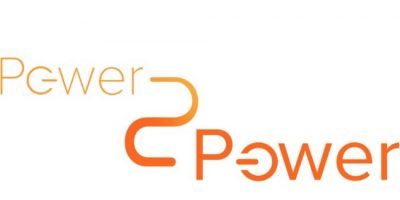European research project, Power2Power for more efficient power semiconductors has begun
The European cooperation project Power2Power has started. Over the coming three years, 43 partners from eight countries will research and develop innovative power semiconductors with more power density and energy efficiency. Power semiconductors are needed in all stages of energy conversion: generation, transmission, and use. More efficient semiconductors make a major contribution towards reducing carbon dioxide emissions in spite of the world’s growing energy needs. Universities, research institutes, small and medium-sized companies and international corporations are involved in this cooperation. Infineon Technologies Dresden GmbH & Co. KG is coordinating this project.
“Collaboration across different levels of the supply chain is a basis for the success of the European microelectronics industry,” said Dr. Reinhard Ploss, CEO of Infineon Technologies AG. “We are also pursuing this approach in the Power2Power cooperation project. In collaboration with our partners, we will be working on new power semiconductors and system architectures with higher energy efficiency. Our goal is: more power from less energy.”
The volume of the Power2Power project will be approximately €74 million. Two thirds of this will be allotted to the German partners. The European Union is funding the cooperation within the scope of the ECSEL (Electronic Components and Systems for European Leadership) program. Funding from Germany will be provided by the Federal Ministry of Education and Research and from the two states of Saxony and Thuringia. The partners from the other seven countries are also being sponsored by their national authorities.
“Saxony is the largest microelectronics cluster in Europe,” stresses Minister-President Michael Kretschmer. European cooperation, such as Power2Power, is enormously important for the continued development of Silicon Saxony. The project takes into account all stages of the supply chain and combines innovation with energy efficiency. This could make a significant contribution towards increasing the competitiveness of the European microelectronics industry. This is one of the reasons why the Free State of Saxony welcomes and supports this research project.” Dr. Herbert Zeisel, undersecretary in the German Federal Ministry of Education and Research (BMBF), emphasises that, on the whole, the Saxon electronics cluster is an outstanding pillar for European high-tech: “Microelectronics is a key for successful industrial products from Germany and Europe. The latest trade disputes illustrate how sovereignty and autonomy are dependent on a country’s own capabilities in research and development. Power2Power shows how we can assert ourselves in the global competition. Europe, Germany, Saxony, and Thuringia are acting in concert in the ECSEL program. In the negotiations in Brussels, the BMBF will advocate for the successful ECSEL program to be continued and administration simplified after 2020.”
The European semiconductor industry employs several hundred thousand people. But in its technology-related user industry, it has a much greater leverage effect. “An important focus is the booming market for power electronics,” says Bert De Colvenaer, Executive Director ECSEL Joint Undertaking. “With regard to the global competition – especially from Asia – Power2Power will help increase the manufacturing share of European companies on the world market and further strengthen its leading positions.”
In Germany in particular, the Power2Power project will help extend the competitiveness of semiconductor production. The supply chain for power semiconductors is especially extensive, which is also evident in this this project: from special silicon wafers (Siltronic), to IGBT production at Infineon in Dresden and subsequent module production at Infineon in Warstein, to systems and the associated knowledge, for example from the SMEs EAAT and AVL and from Dresden University of Technology.
An overview of all the partners in the project can be found at www.infineon.com/power2power.
On several supply chain levels, the Power2Power partners will develop pilot lines at German sites to produce innovative power electronics that are fit for the future. With strong partnerships and investments in innovation, the cooperation project will secure and create highly qualified jobs. Consequently, Power2Power is supporting the Federal Government’s High-Tech Strategy 2025.




